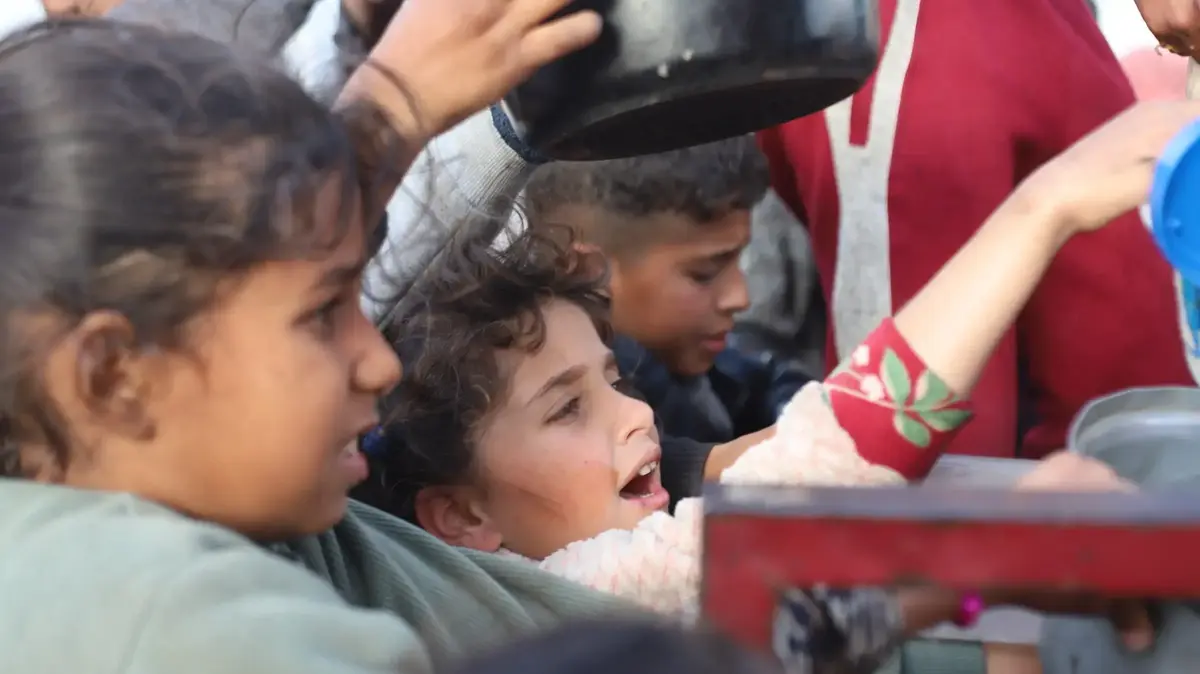Wars, armed conflicts and violence are the main causes of hunger in the world. This, like malnutrition, has not stopped increasing since 2015. There are 828 million people in the world who do not have regular access to food and, of these, 258 million suffer from acute hunger. What exactly does this mean? Well, the health and lives of the people affected are at great risk.
Malnutrition is the greatest threat to child survival worldwide: more than 45 million children under the age of five suffer from acute malnutrition. This occurs when the body does not receive enough food and depletes its energy reserves. The body begins to consume its own tissues, starting with muscles and fat, in search of nutrients and energy essential for survival. As a result, the body's metabolism slows down, temperature regulation is disturbed, kidney function deteriorates and the immune system functions in a limited way. The greater the loss of muscle mass and other tissues, the greater the threat to survival.
International humanitarian law prohibits the disablement in any way of objects essential to the survival of the civilian population such as food, fields, crops, livestock and drinking water facilities.
According to the United Nations World Food Programme's Global Food Crisis Report, up to 258 million people in 58 countries were affected by acute food insecurity in 2022. In 2021, the figure was 193 million people in 53 countries. The increase in hunger in the world is directly linked to conflicts and wars and to the flagrant disregard of international humanitarian law by the warring parties, whose main victims are always the civilian population. More than 85 per cent of the 258 million people suffering from acute hunger live in countries affected by war and conflict. In addition, extreme weather events, economic crises and rising food prices contribute to the current severe food and nutrition crisis.
The impact of armed conflict on food security directly affects when armed parties strategically use political or military actions to cause food insecurity and malnutrition among the population. These include the systematic large-scale burning and devastation of homes and property; the looting and destruction of seeds, food and livestock, and targeted attacks on humanitarian workers; But it also affects, in an indirect way, when agricultural production is reduced or transport routes or water supply are interrupted.
Conflicts also aggravate economic problems. In 2022, for example, food prices increased by more than 10% in 38 countries that were already in food crisis. Among them, Sudan, South Sudan and Haiti. A significant number of countries also faced unusually high inflation in 2022, affecting the food security of millions of people.
The destruction of basic infrastructure and social services during violent conflict, as seen in many conflict contexts, is a common tactic to further degrade the already depressed socio-economic situation of communities. Again, the destruction of these facilities often results in civilians bearing the brunt of the conflict. Wars in cities, in particular, have a catastrophic impact on civilians and their basic needs. Today, 56 per cent of the world's population lives in cities, putting them at increased risk of food insecurity during and after conflict.
International humanitarian law expressly prohibits attacking, destroying, removing or otherwise rendering useless objects essential to the survival of the civilian population, such as food, fields, crops, livestock and drinking water facilities.
This week marked five years since the United Nations Security Council unanimously adopted Resolution 2417 on the Protection of Civilians. The resolution recognizes the link between conflict and famine and calls the use of hunger as a weapon of war a war crime. Since then, however, hunger caused by conflict has increased. Parties to conflict and humanitarian donor states must respect and strengthen international law. UN Member States must prevent the emergence and escalation of food and humanitarian crises, and invest in building resilient livelihoods and food security.
Olivier Longué is Director General of Action Against Hunger.
You can follow PLANETA FUTURO on Twitter, Facebook and Instagram, and subscribe here to our newsletter.


/cloudfront-eu-central-1.images.arcpublishing.com/prisa/U2R7NZPI4CFAXSB3RA5IFUE2VE.jpg)


/cloudfront-eu-central-1.images.arcpublishing.com/prisa/6QTLY5O5HNLTHDIKOJG7O6H5DA.jpg)



